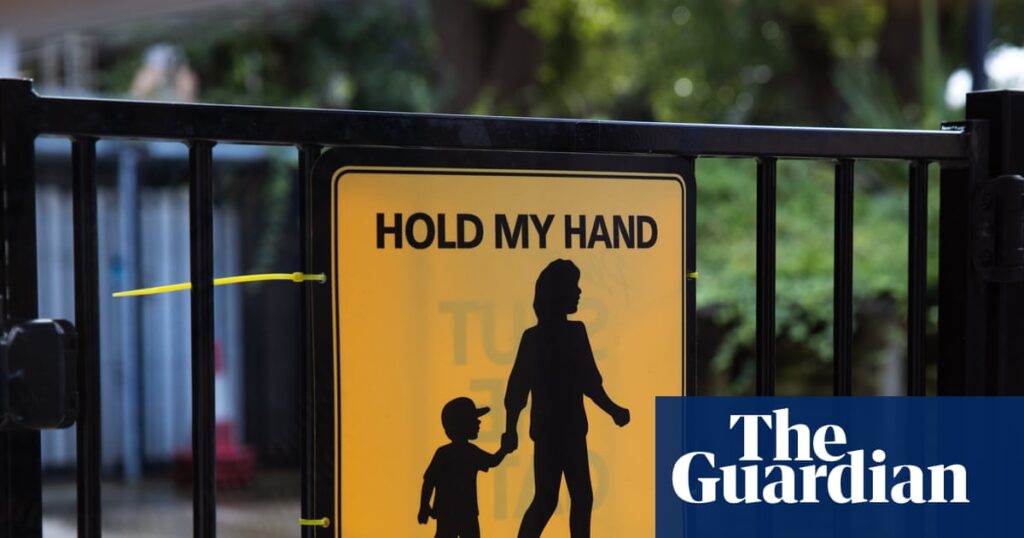Reports of physical violence and neglect in Victorian childcare centres have surged, with mandatory reports up 32% in the last financial year.
The Victorian Commission for Children and Young People’s annual report, tabled in state parliament on Wednesday, reveals that there were 705 notifications of reportable allegations in the childcare sector in the 2024-25 financial year, each of which can include multiple alleged acts, an increase of 32% on the previous year’s 534.
There were 967 individual allegations relating to specific alleged acts, the report said. This included 627 allegations of physical violence, 152 of neglect, 78 of sexual misconduct and 27 alleged sexual offences.
Under the state’s mandatory reporting system, employees working in a variety of institutions including education, health and religious bodies are required by law to report serious allegations, like sexual offending, assault or neglect, to the police or other authorities.
The commission received a record total 2,232 notifications of reportable allegations in the 2024/25 year, an 18% increase on the number of notifications since the previous financial year.
Sign up: AU Breaking News email
In the education sector the most common allegation was sexual misconduct, representing more than one in three allegations since 2017.
The commission noted more than half of sexual offence allegations (51%) and almost half of sexual misconduct allegations (48%) across all sectors were substantiated.
“The substantiation rate for sexual offence allegations has substantially increased over the life of the scheme, rising from 15% in 2018/19 to 51% in 2024/25,” the report reads.
The childcare sector has come under scrutiny after it was revealed in July that a Victorian childcare worker had been charged with sexually abusing eight children in his care, aged between five months and 2 years. The man, who is yet to enter a plea, faces more than 70 charges.
After the allegations were made public, the Victorian government ordered a rapid review into the sector, which found that there was “no silver bullet” to “prevent dangerous individuals” from working in childcare and the system required a “fundamental reset” to improve child safety.
The education minister, Ben Carroll, introduced a bill to parliament on Tuesday to establish a new Victorian early childhood regulatory authority as recommended by the review.
But the government will fail to meet its deadline to enact all the review’s recommendations, including an overhaul of working with children checks, by the end of the year.
“The horrifying increase in reportable conduct shows that Labor is presiding over a broken system that is failing to protect Victorian children,” the Coalition’s shadow minister for education, Evan Mulholland, said.
The commission warned the increase in mandatory reports had outpaced its resourcing, undermining its ability to provide advice.
“We have focused our limited resources on the cases of most obvious and serious risk to children,” the report said.
after newsletter promotion
“The commission’s resource limitations have impacted our ability to run the scheme in a way that maximises child safety and as recommended by the royal commission into institutional responses to child sexual abuse.”
The report also recommended investigating the potential impact of the state’s recent bail law changes, warning of a deterioration of conditions in the state’s youth justice facilities.
The commission noted there was already a substantial increases in assaults – up 114% between youth, up 100% between youth and staff, and a 211% increase in dangerous incidents. It also noted “poor quality of care incidents reached their highest in four years, rising 275%”.
“It is frustrating to see a continued drift away from what we know works to keep communities safe, often fanned by irresponsible media reporting calculated to provoke knee-jerk political responses,” acting principal commissioner and commissioner for Aboriginal children and young people, Meena Singh, said in the report’s foreword.
The commission also completed 37 inquiries into children’s deaths and made 14 recommendations as a result.


